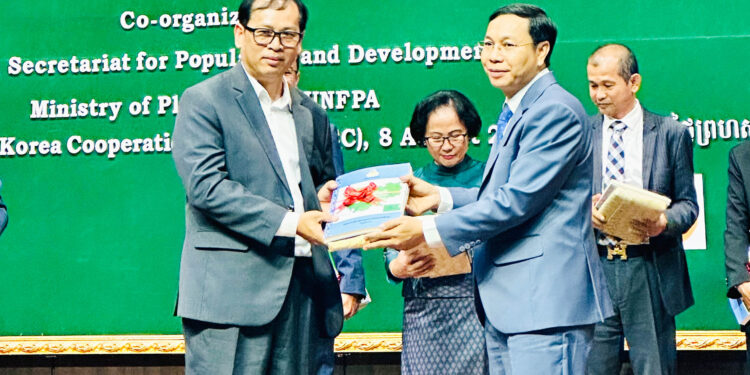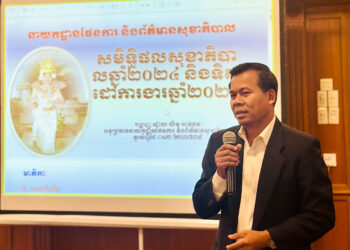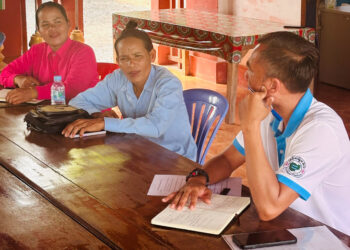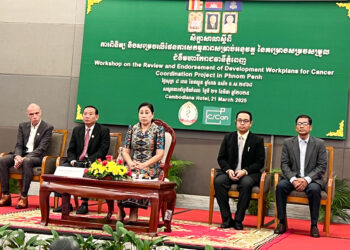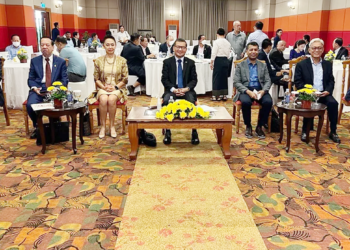Mr. Tim Vora, the Executive Director of HACC, attended the 35th World Population Day and the celebration of the 30th anniversary of UNFPA’s presence in Cambodia. The event was organized by the Ministry of Planning in partnership with the United Nations Population Fund (UNFPA) and took place at the Cambodia-Korea Cooperation Center (CKCC) under the theme “Inclusive Data, Resilient Populations – Building an Equitable Future for All.”
Around 300 participants representing government officials, development partners, NGOs and students joined the half day meeting.
The objectives of the meeting include
Raise Awareness: Increase understanding among policymakers, CSOs, and the public about the importance of inclusive data in crafting resilient and equitable policies.
Promote Dialogue: Facilitate a collaborative dialogue among key stakeholders on the current state of data inclusivity and its implications for social equity and resilience.
Showcase Best Practices: Highlight successful examples where inclusive data has led to effective policy interventions and improved societal outcomes.
Identify Gaps and Challenges: Recognize existing gaps and challenges in data collection, analysis, and utilization that hinder the development of equitable policies including a summary of actionable strategies and recommendations for enhancing data inclusivity and resilience-focused policies at the national and sub-national levels.
After the opening remarks by key stakeholders and followed by traditional dance and video documentary, a panel discussion was organized by co-facilitators including H.E Poch Bunnak, Secretariat State of the Ministry of Planning and Ms. Sandra Bernklau, UNFPA representative.
There were five key panelists including H.E Lork Kheng, the 8th Commission of Cambodia ‘s National Assembly, H.E Dr. Chan Narith, Under Secretariat of State and the Secretary General of the National Social Protection Council of the MoEF, H.E Lay Chhan, Deputy Director of NIS, MoP,
H.E Dr. Chiv Ratha, Deputy Secretary General of Cambodia National Youth Development, MoEYS and Mr. Tim Vora, Executive Director of HACC.
As the representative of CSOs in the health sector, Mr. Vora, highlighted the roles of the HACC Secretariat since the establishment in 1995. The key roles of HACC include networking, coordinating, information sharing, raising awareness campaigns, capacity building, representative of NGOs with the government and DP, advocacy and strengthening heath and community system for improving health quality.
With almost 30 years in service, HACC is actively collecting data from CSOs in the heath sector for contributing to the development of strategic plans, policies and guidelines for the national programs related to the health sector. The information flows from the national to the sub-national level through our social media channels. HACC has been using two types of data collection from CSOs including regular and irregular. The irregular data collection from CSOs is usually for contributing to the law, strategic plan and policy development.
In addition, with technical support from UNAIDS and FHI360, HACC is set up community-led monitoring (CLM) as a feedback system for the community members to feedback on health care providers. The system is set up because the current feedback box is not working. People dare not to write and put their complaints in the box. HACC has been designing the CLM for HIV and AIDS service, SRH and vaccination programs. In addition, HACC will also set up the CLM for NCD services soon.

